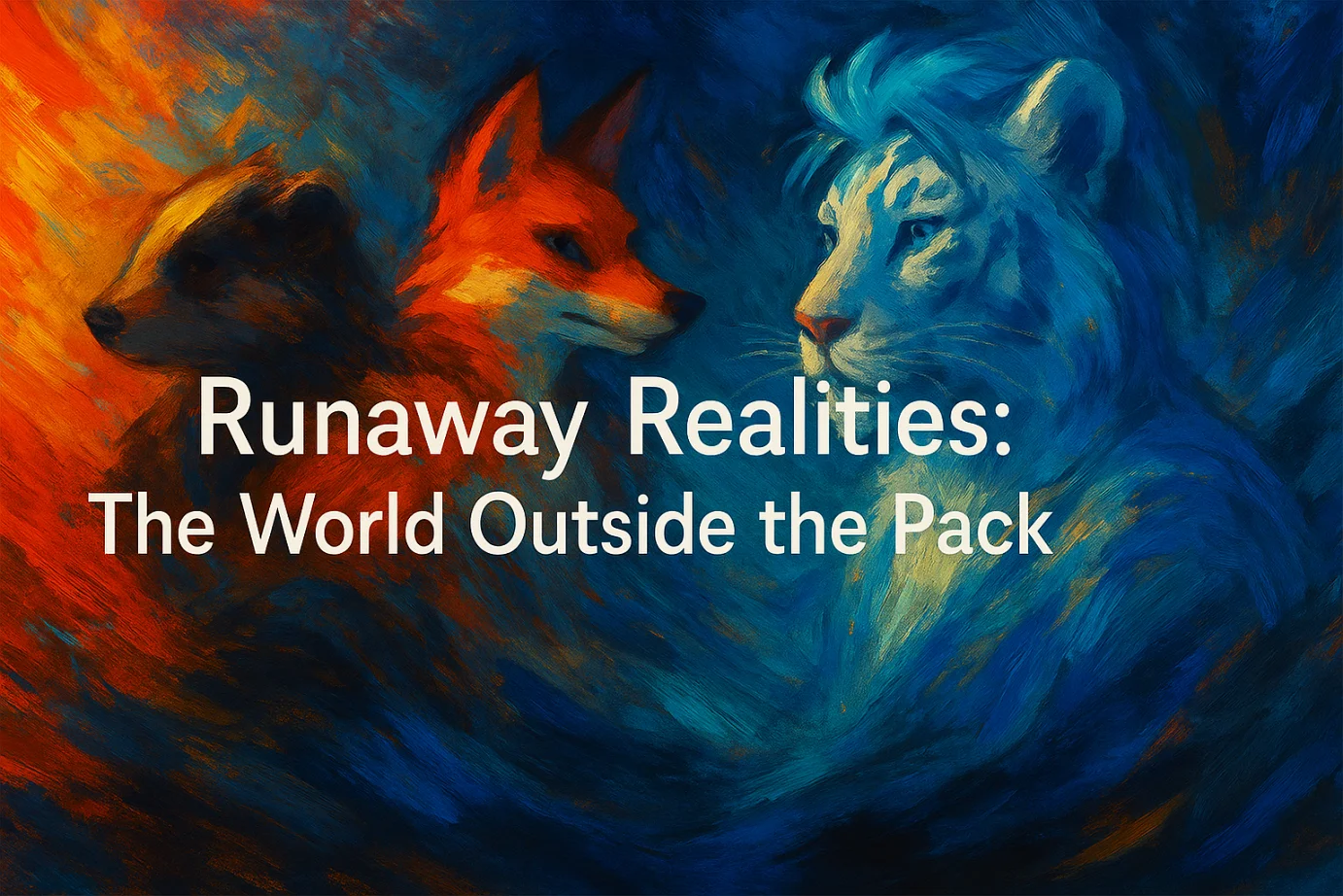When the moonlight glints off a fox’s silvery pelt or through the stripes of a white tiger, it reveals not only fur but histories—stories of generations bound by instinct, expectation, and unspoken rules. In every corner of our world—whether nestled in the mossy riverbanks of the otter clans, the soaring eyries of the griffon flocks, or the dense, shadowed groves of the lupine tribes—social pressure coils through the air like morning mist. We grow up hearing the lullabies of our kind: “You must hunt as we do,” “You must love whom your kind loves,” “You are our future.” Yet for those few who feel an ember of restlessness, those words become chains rather than comforts.
From the moment we learn to walk, our steps are guided by the pack. Species norms dictate everything: where we belong, how we behave, even whom we desire. A wolf raised among lions may find his howl drowned out; a swan among penguins may struggle to understand their laughter. At the boundary between belonging and becoming, many find safety: comfort in knowing their role, strength in shared identity. But what lies beyond that boundary? What horizons unfurl when the tether of expectation breaks?
Consider the story of Iris, a young fox whose silvery coat set her apart even among her own lithe kin. She danced on river stones instead of skirting their edges, choosing solitude over the chase. Her pack called her erratic, untrustworthy. When she dared to cross into badger territory—seeking wisdom in their stoic calm—she discovered a world unbound by the chase and feast cycle that governed her birthright. With each stolen moment beneath gnarled oaks, she shed layers of the pack’s creed: “Be cunning,” became simply “be”; “Be swift,” became “be still.”
Breaking away doesn’t come without cost. Rumors trail runaways like bitter smoke. Fangs may snap in warning, claws may mark rebuke. For Iris, the betrayal stung sharper than any claw—her chosen solitude branded her a traitor, the fox who abandoned the scent of home. Yet as the seasons unfurled, she found a fresh rhythm: splashing dawn pattering instead of sunrise hunts, labored breaths of wonder instead of survival crescendos. The world beyond the pack was messy, unpredictable, and alive.
Each species carries its own gravity. Eagles are born above vast canyons, their world painted in endless sky. They speak in gusting winds and judge those who look instead to the underbrush. Otters, tumbling like pebbles in rapids, trust play as the highest form of bonding—and scowl at the stoic grasses of the elk herds that ignore their laughter. When individuals stray, they carry both the gift of perspective and the weight of exile. To break free is to become translator between worlds—to learn that an elk’s silent grace can temper a fox’s cunning, that a heron’s patient stillness can heighten a falcon’s dive.
Yet perhaps the greatest lesson of the runaway reality is this: freedom is not an escape from identity but an invitation to expand it. In the tangled borderlands between packs, cross-species friendships kindle. A solitary badger may find kinship with a loner lynx; together they chart new paths, blending burrow and pounce, dusk and dawn. They learn the beauty of difference: that a single species norm is but one shard of a vast prism. And when that prism catches the light, it scatters rainbow truths across the world.
Beyond the borderlands, there are those who refuse even a shared boundary. Take Solara, a fledgling harpy raised within the lavish courts of the phoenix realm. She was taught that rebirth through flame was the only path to worthiness, yet her wings carried her toward the distant marshes of the cranes. There, in wetland hush, she learned slower rituals of patience and humble renewal—each molt a quiet transformation rather than a blaze. Solara’s dual heritage became her greatest strength: the resilience of embers and the grace of wetlands combined within her heart.
Social pressure, then, is a double-edged talon: it carves identity, but it can also confine. Breaking norms means enduring stares and whispers, wrestling with moments of self-doubt as old voices echo in your mind. Yet it also means discovering hidden reserves of courage, empathy, and creativity. When you step into the great unknown, you encounter others who have shed expectations—wanderers who share tales that reshape your understanding of community.
So what does it mean to break away from your kind? It means daring to ask, “What if my heart beats to a different drum?” It means learning to weave your own tapestry from the threads of every world you touch. It means facing the abyss of uncertainty—and finding, in that echoing expanse, the fullness of your own voice. It means building new packs, bound not by fur or feathers, scales or hide, but by shared dreams and values.
For life outside the pack is neither solitary punishment nor simple reward, but an ever-shifting frontier where each sunrise offers a new chance to rewrite who you are. At the edge of the pack, you stand alone—but also more alive than you ever felt within the fold. Here, you are not fox, wolf, or tiger, but you: a creature of boundless potential, charting runaway realities that no single pack could ever contain.




